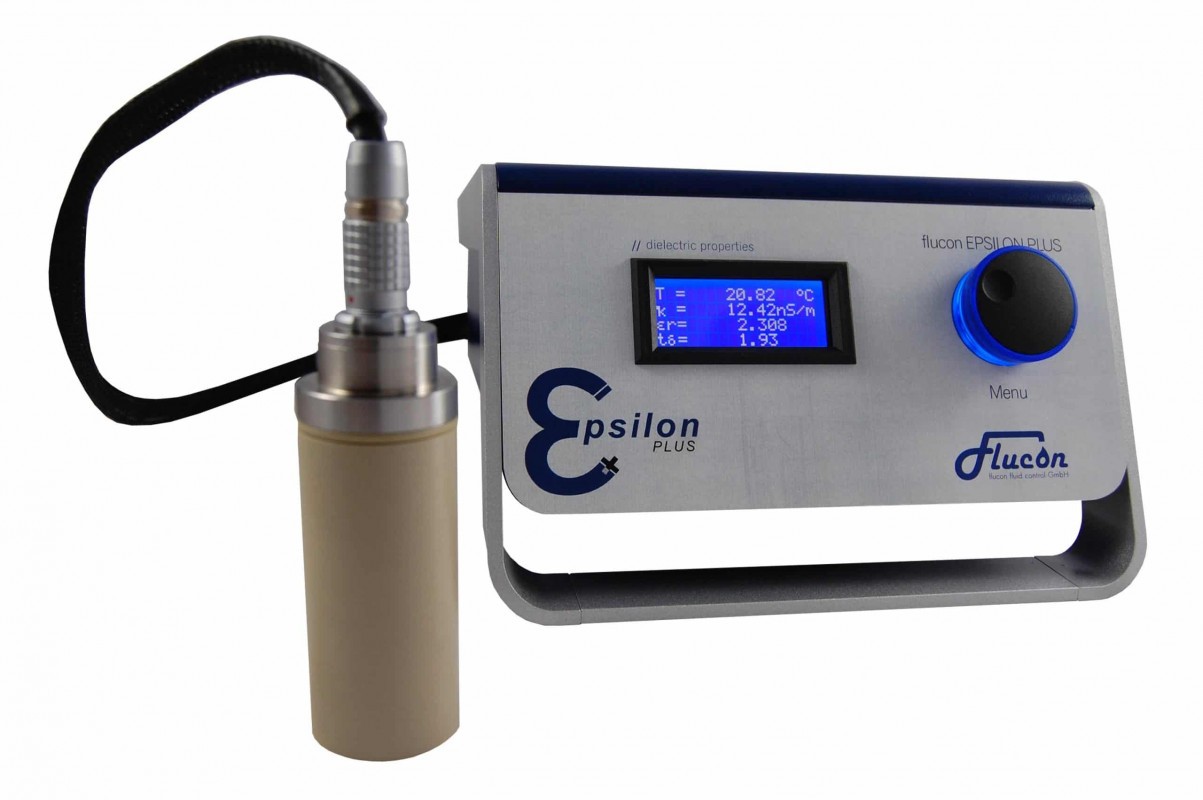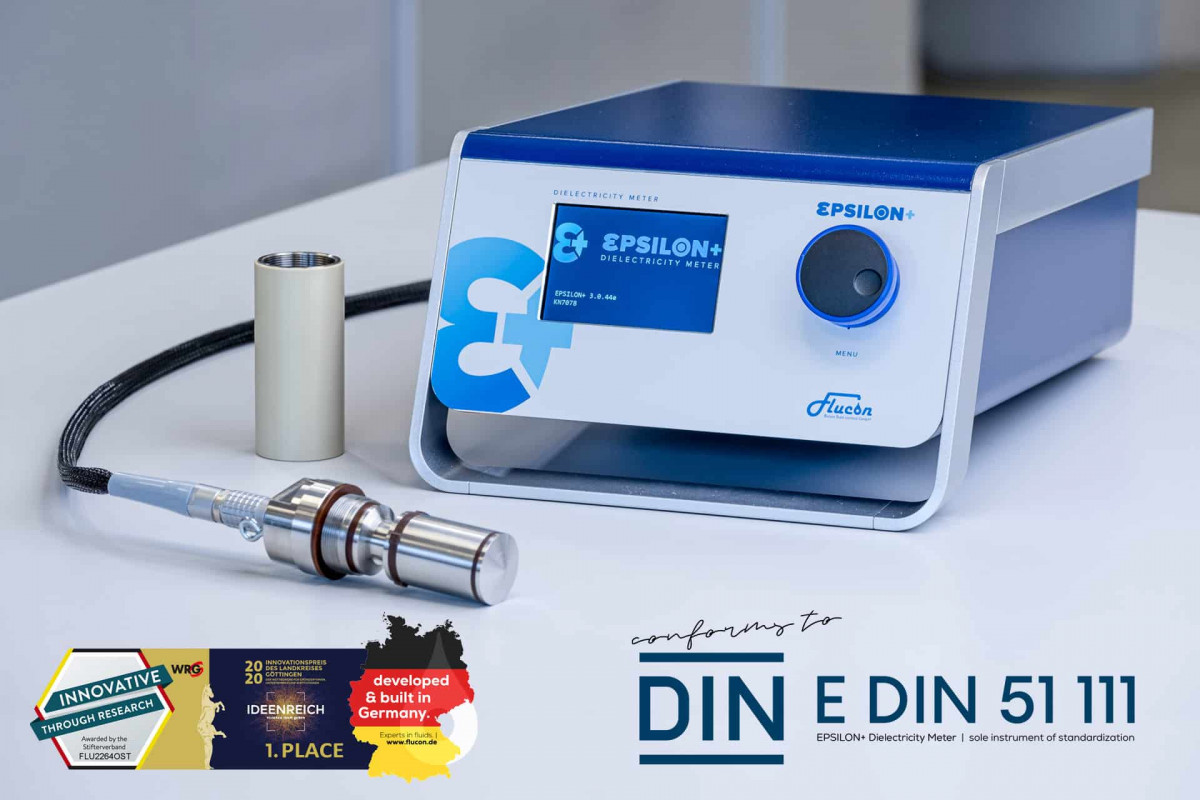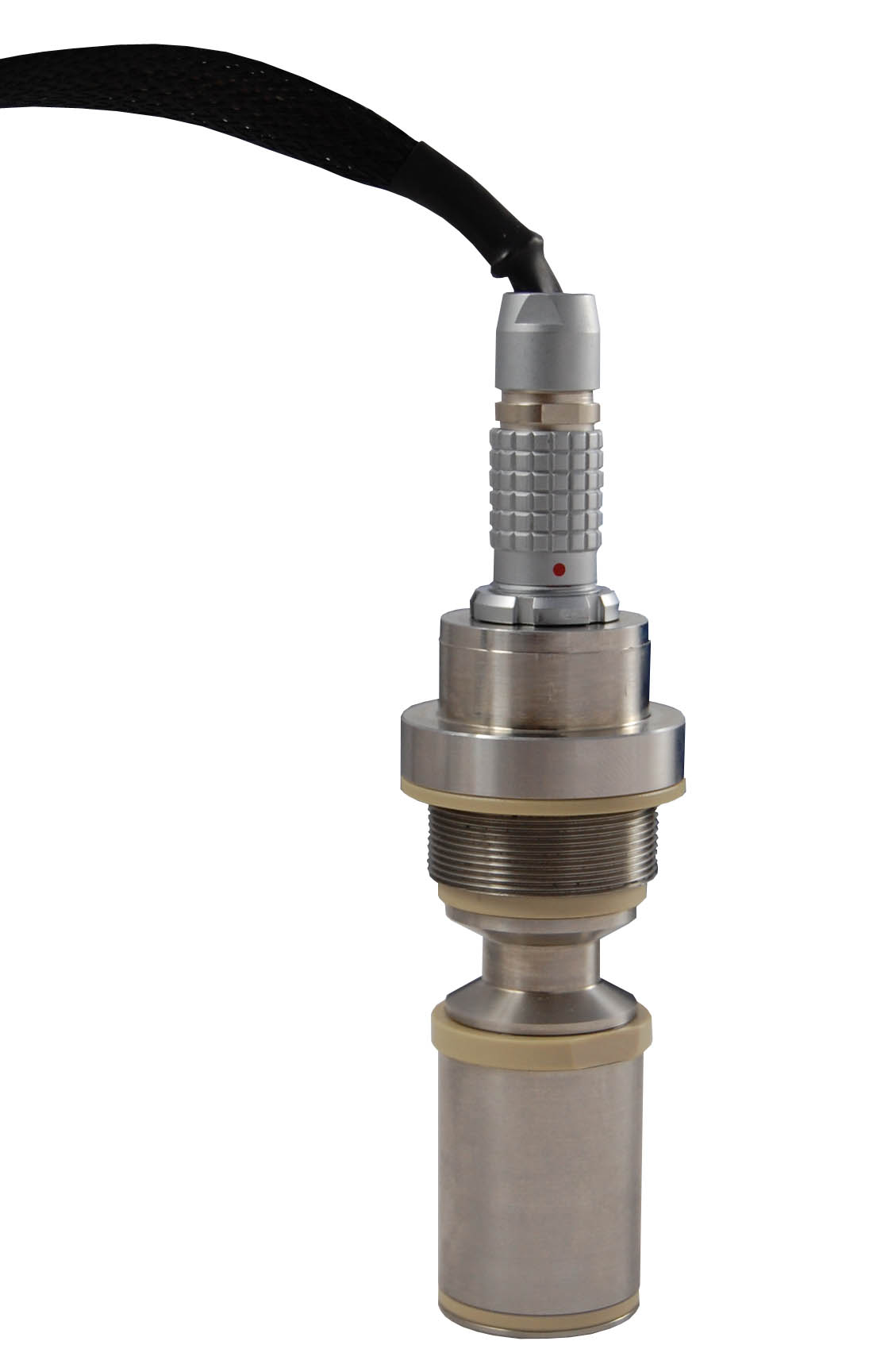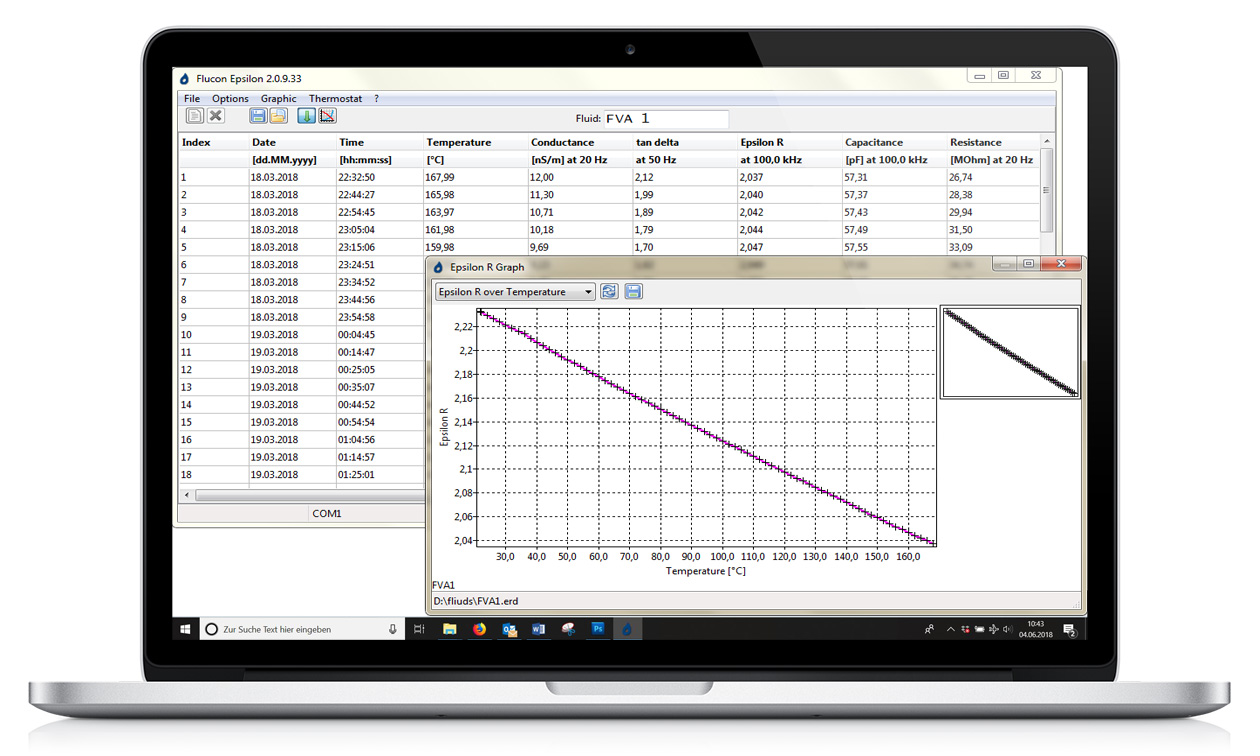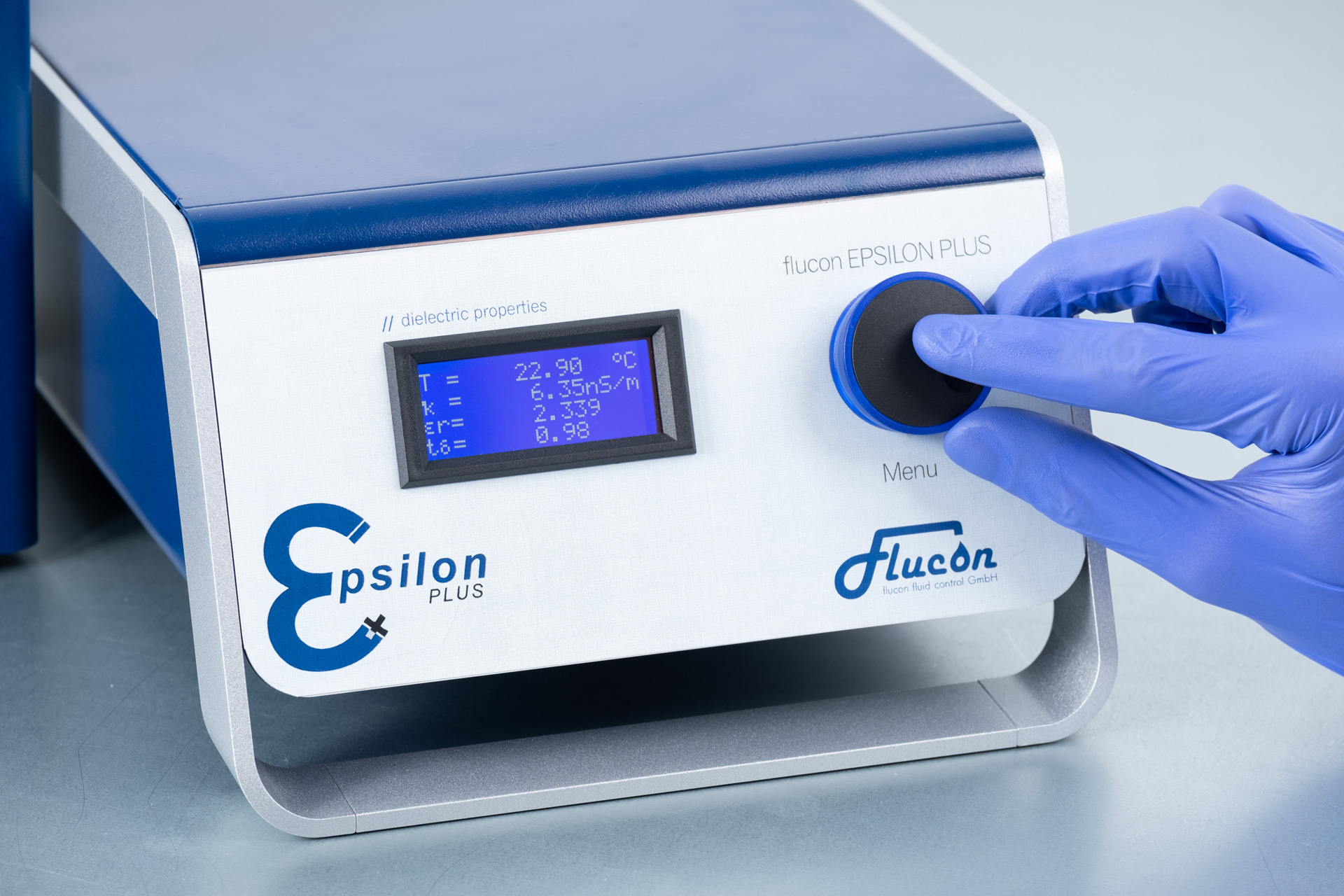New Challenges in the field of fluid research and electric driveline development
합성 오일과 윤활유, 기어 오일은 완벽한 절연체가 아니므로, 필요 시 electro hybrid mobility로 인한 유전 특성 (dielectric property)에 관 요구사항을 충족해야 합니다. 심지어 종래의 연소 엔진에 사용되는 대부분의 오일도 이미 최소 수준의 전기 전도도가 측정됩니다. 이는 예를 들어, 기어 내부 정전기로 인해 과전압이 발생하면 electric tension을 줄이는 데 도움이 됩니다.
EPSILON+는 e-mobility 외에도 rolling bearing grease의 검사, 변압기의 개발 및 운영을 위한 유전율 (relative permittivity) 또는 손실계수 (dissipation factor tan δ)와 같은 유전특성의 측정에 쓰일 수 있습니다.
EPSILON+ 전기전도도측정기는 오일과 유체의 e-mobility에 따른 필수 유전 특성(dielectric parameter)을 측정하는 강력한 시스템입니다.
flucon's latest innovation:
Dielectricity sensor EPSILON+
EPSILON+는 DIN IEC 60247과 E DIN 51 111 표준규격에 근거하여, 복합유체의 임피던스를 정밀하게 측정하는 컴팩트한 유전율측정기로써,
- 전기전도도 (Electrical Conductivity)
- 유전율 및 유전상수 (Relative Permittivity / Dielectric Constant, εr)
- 손실계수 (Dielectric Dissipation Factor (DDF) tan δ)
를 측정하는 데 사용됩니다.

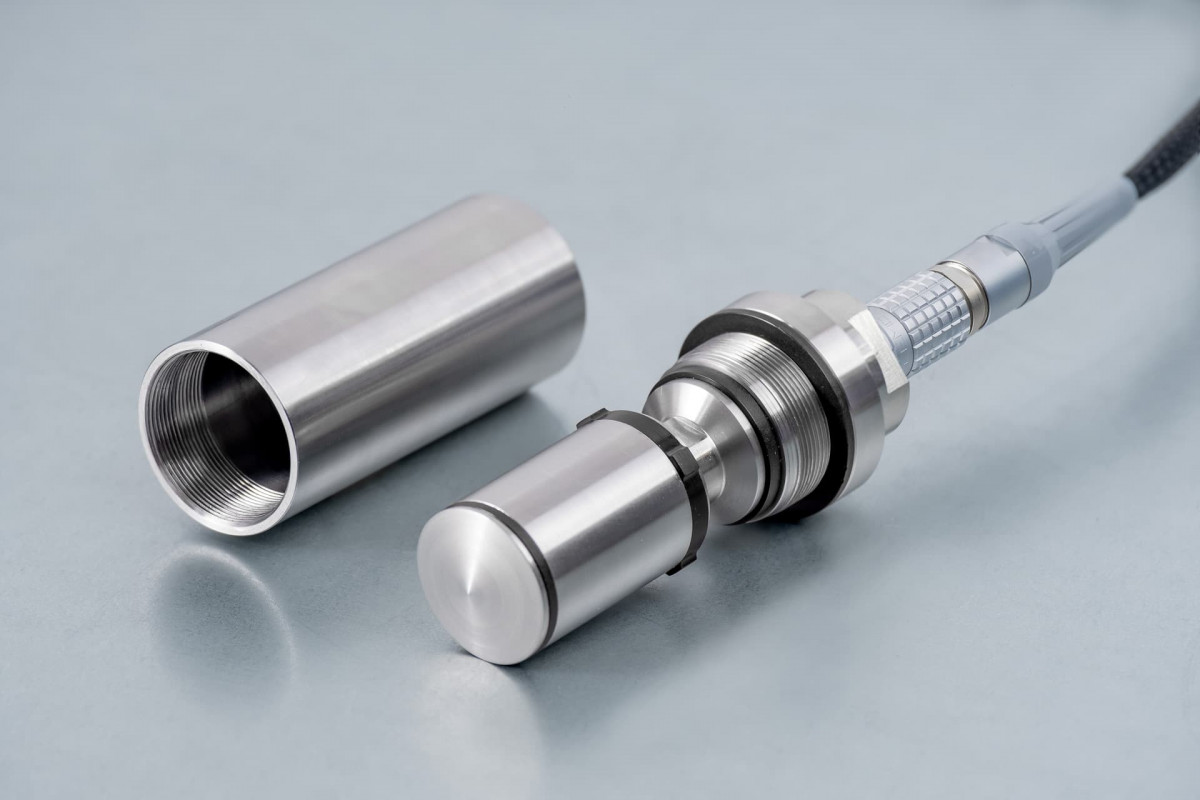
EPSILON+ // Measurement
EPSILON+는 특징은 기기 운영자의 편리함을 도모하고자 하는 데 있습니다. 10ml 미만의 매우 적은 샘플을 제공되는 스테인리스 스틸 컵에 채우고 screw-in sensor로 측정합니다. 선택사양인 thermostat을 사용하면, 요구되는 온도 범위를 제어하고 온도에 따른 함수로써 유전 특성을 측정할 수 있습니다. 특정 온도 범위 내에서 자동 측정 또한 가능합니다.
EPSILON+ // Features
- E DIN 51 111에 따른 복합유체의 임피던스를 측정
- specific electrical resistivity/conductivity 및 dielectric constant, DDF의 측
- 소량의 샘플 사용 (8 ml)
- 정확도와 재현성이 탁월합니다.
- 내마모성 스테인리스 스틸 screw-in sensor
- Pt100 온도센서 내장형
- 측정 샘플의 자동 온도 컨트롤을 위한 thermostat 옵션 가능
- TFT 디스플레이를 가진 컴팩트한 table housing의 컨트롤러 (evaluation electronics)
- 제어와 측정 분석 평가를 위한 EPSILON+ 전용 PC software를 제공합니다.
Optional thermostat
샘플의 온도를 자동으로 제어하는 thermostat 옵션 (EPSILON+ automatic sample temperature control):
- Dry-block thermostat (standard for E DIN 51 111, as shown below): room temperature to 180°C
- Julabo fluid thermostat with heat exchanger vessel for additional cooling: -20°C to 180°C
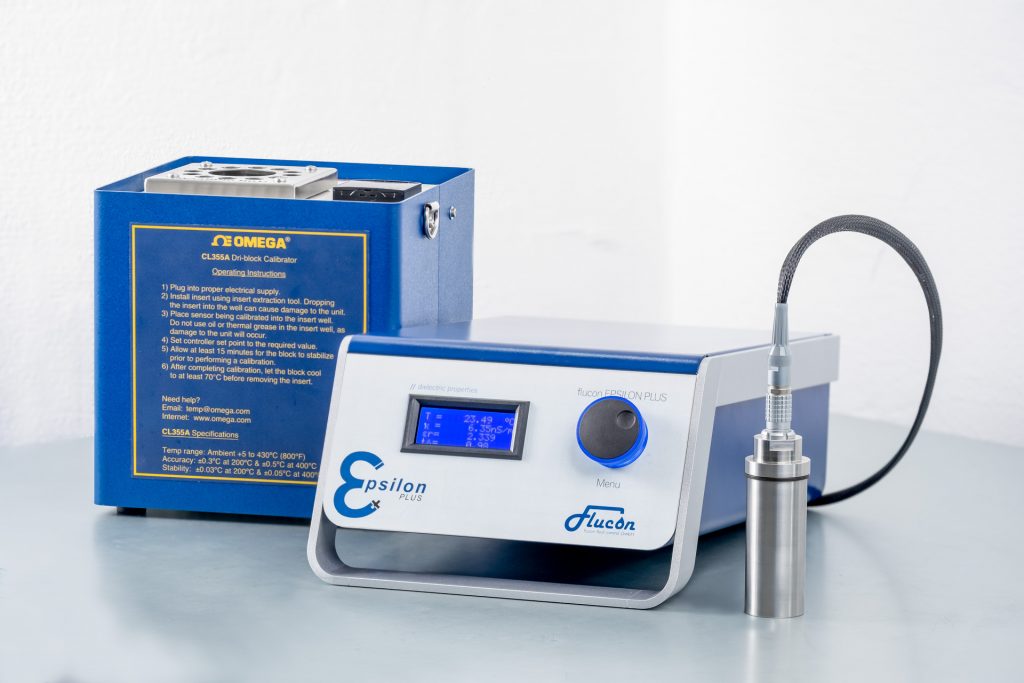
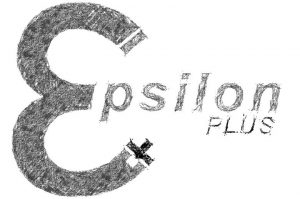 E is for enhancement.
E is for enhancement.
You would like enhance your knowledge about the electrical behaviour of your oils and equipment?
We offer a compact and comprehensive system for dielectric analysis of your fluids.
Technical specifications
|
Test standards
|
DIN EN 60247
ASTM D2624 (conforms partially)
DIN 51 111 (pending)
|
|
Sensor |
|
|
센서 크기 (Sensor Dimension)
|
D = 38 mm, H = 115 mm
|
|
샘플량 (Sample quantity)
|
8 ml
|
|
구성 요소 재질 (Materials)
|
Stainless steel, polyether ether ketone (PEEK), polyimide
|
|
온도 센서 및 정밀도 (Temperature measurement)
|
Pt 100, ± 0.1°C deviation
|
|
온도범위 (Temperature range)
|
-20°C to 180°C
|
|
온도 컨트롤 (Sample temperature control)
|
Electric thermostat optionally available (controlled by EPSILON+)
|
|
Measurement |
|
|
전기전도도 (Electrical conductivity)
|
측정범위 (measuring range) : 0 nS/m to 600 μS/m
분해능 (resolution): 0.02 nS/m
|
|
고유저항 측정범위 (Resistivity range)
|
approx. 60 Ω-m to 10 GΩ-m.
|
|
유전율 측정 범위 (Relative permittivity - measuring range)
|
1 to 10
|
|
손실계수 (Dielectric dissipation factor, DDF)
|
측정범위 (measuring range): 0 to 10,000
분해능 (resolution): 0.003
|
|
측정 소요 시간 (Measuring time)
|
approx. 15 sec
|
|
정확도 (Accuracy)
|
± 1%
|
|
Electronic unit
|
|
|
전원 (Power supply)
|
110-240 VAC
|
|
소비전력 (Energy consumption)
|
Max. 30 W
|
|
크기 (Dimensions aluminum housing (WxHxD))
|
235 x 150 x 370 mm
|
|
디스플레이 (Display)
|
Blue LCD, 4 x 16 digits
|
|
PC 데이터 통신 (Data communication (PC))
|
RS-232 (adaptable to USB), EPSILON software for WINDOWS
|
Dielectric fluid properties
Test spectrum of the EPSILON+ in accordance with DIN 51111
Specific electrical conductivity ϰ
The specific electrical conductivity, or conductivity, is a quantity which is often characterized by the symbol κ and indicates the ability of a substance to conduct electrical current. Its SI unit is S/m (Siemens per meter).
Our EPSILON+ Dielectrity Meter delivers measured values in nS/m and uS/m.
The suitability of a fluid to conduct electricity is determined by the number and mobility of the charge carriers within the liquid.
Dielectric loss factor tan δ (DDF)
The dielectric loss factor or dielectric dissipation factor (DDF) tan δ is a measure of the amount of energy that a substance in the alternating field absorbs and converts into heat loss. High dissipation factors are not suitable as insulating material in high frequency applications.
The loss factor is an indication of unwanted heat generation and thus provides information regarding the increased risk of thermal breakdown in transformer oils.
As can be seen in the following exemplary graph, both the specific electrical conductivity and the DDF of a liquid depend on its temperature:
Exemplary results (measured with EPSILON+)
(Left Y-axis: DDF; right Y-axis: specific electrical conductivity; Y-axis: temperature)
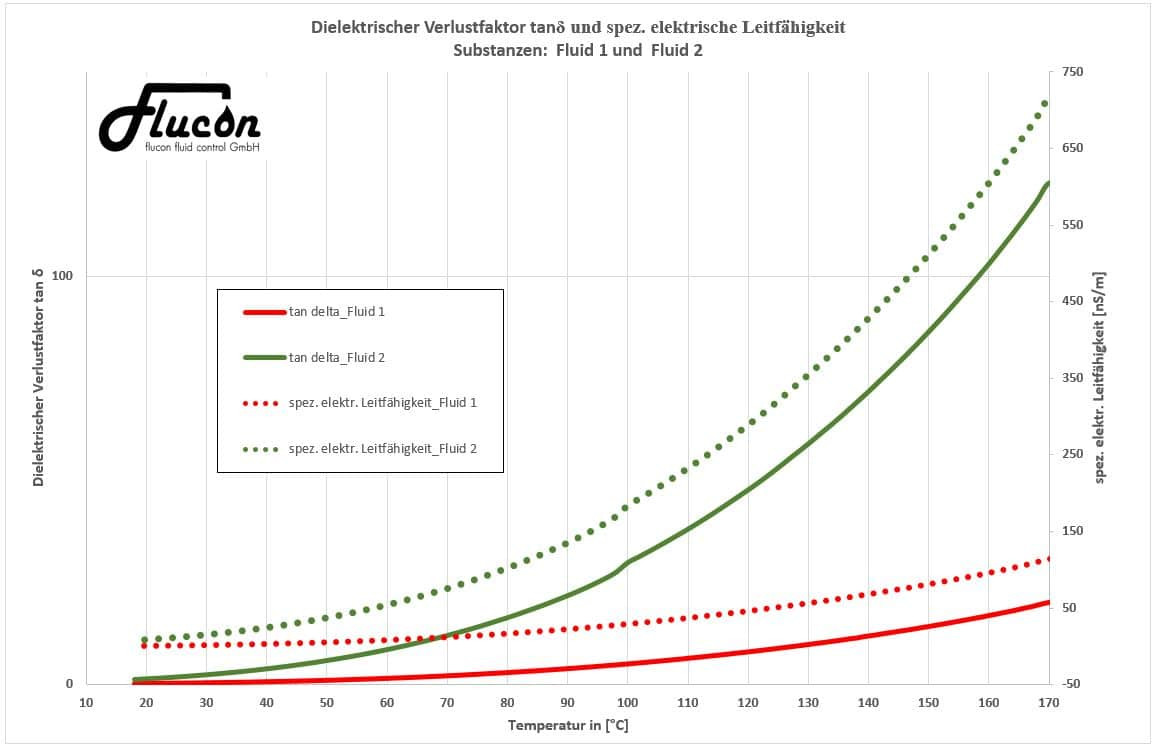
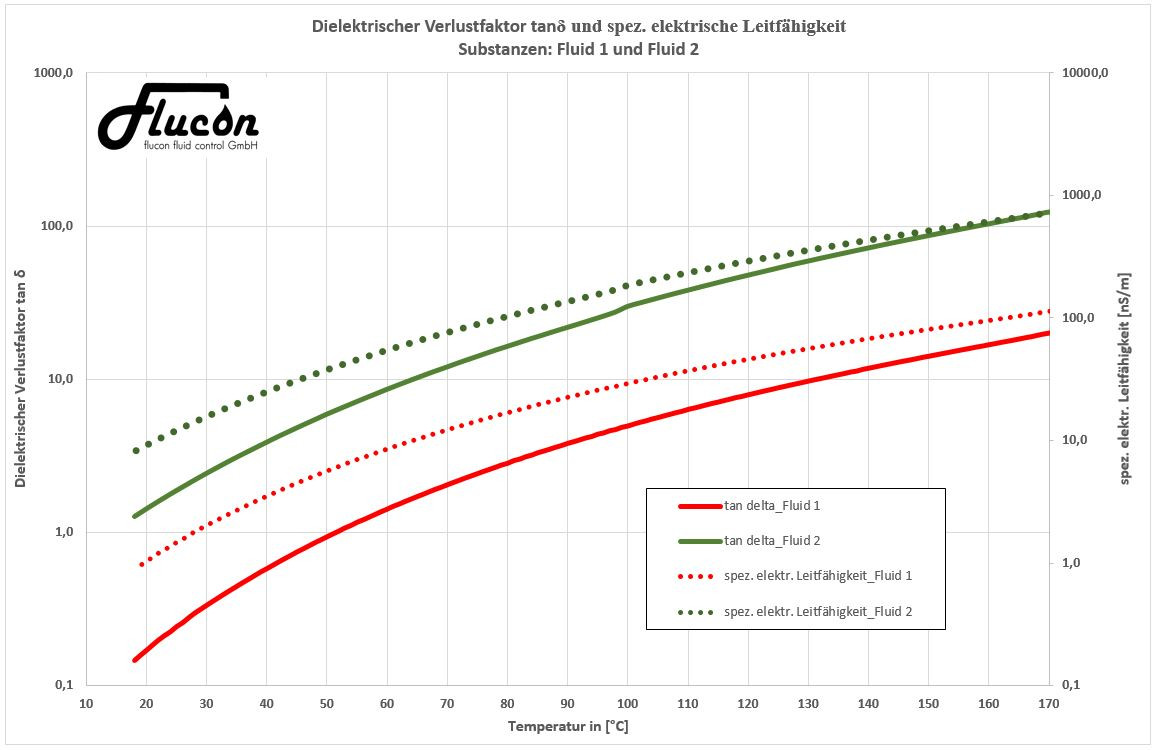
Relative Dielectric / Permittivity / Dielectric Constant ε r
The relative dielectric, or permittivity (lat .: permittere = to let through), of a substance is a measure of its permeability to electric fields.
The electric field constant ε 0, which corresponds to the permittivity of the vacuum, serves as a factor for determination of the permittivity of a substance:
ε = ε 0 ε r
Here, ε r represents the substance-dependent relative permittivity. This is a dimensionless unit which is also temperature-dependent, as measurements with the EPSILON+ will show:
Exemplary results (measured with EPSILON+)
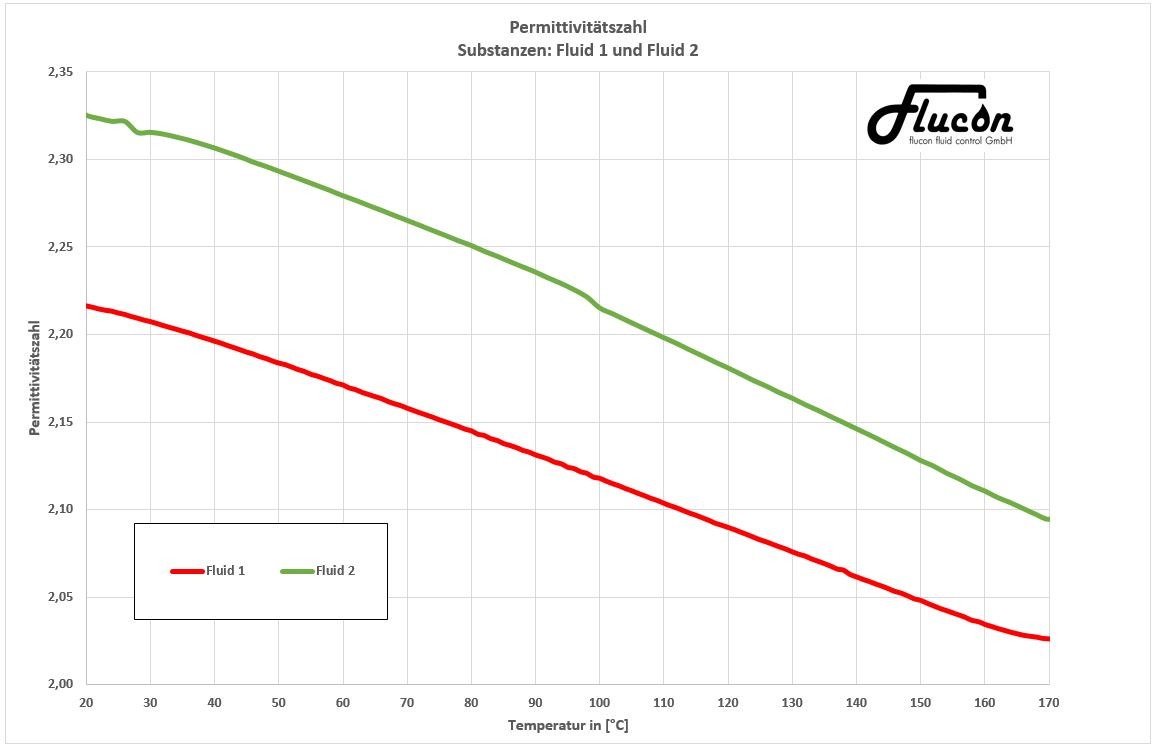
Coming soon: the all-new DIN 51111 test standard:
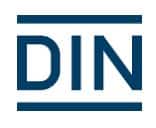
The DIN 51 111 standard "Electrical properties of fresh and used oils from electric drives in vehicles – Measurement of the specific electrical conductivity, the relative permittivity (εr) and the dielectric dissipation factor (tan δ)" is currently undergoing a final review.
It describes the electrical fluid characterization and thus the determination of the above-mentioned parameters as a function of the temperature by means of flucon's EPSILON+ tubular capacitor system.
For oils, the isotherms 50°C, 100°C and 150°C are recommended. Thus, the dry-block thermostat can be used with the EPSILON+.
![]()
For the analysis of grease, on the other hand, the temperatures 50°C, 80°C, 100°C are more suitable and likely to be specified in a later edition.
